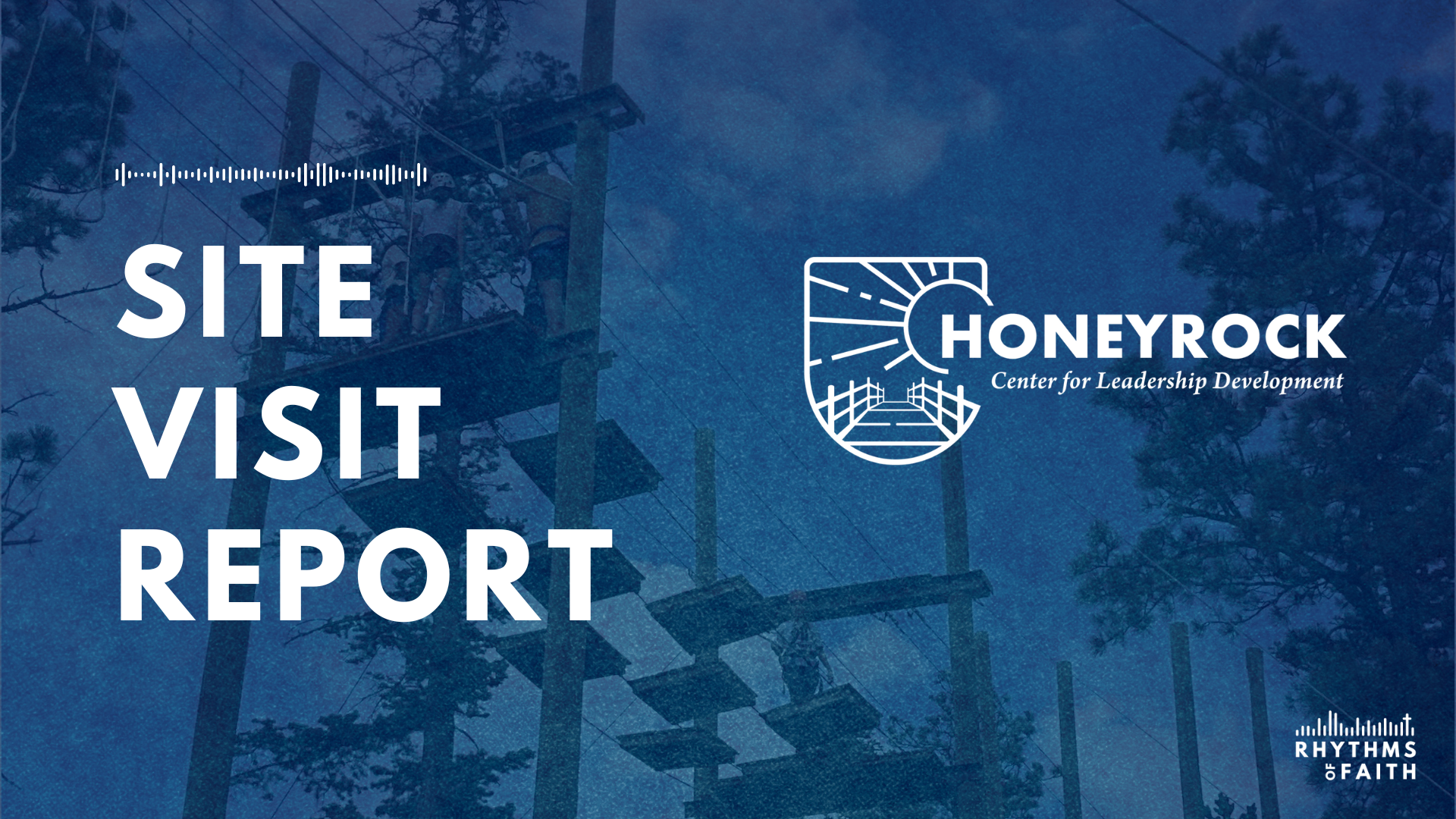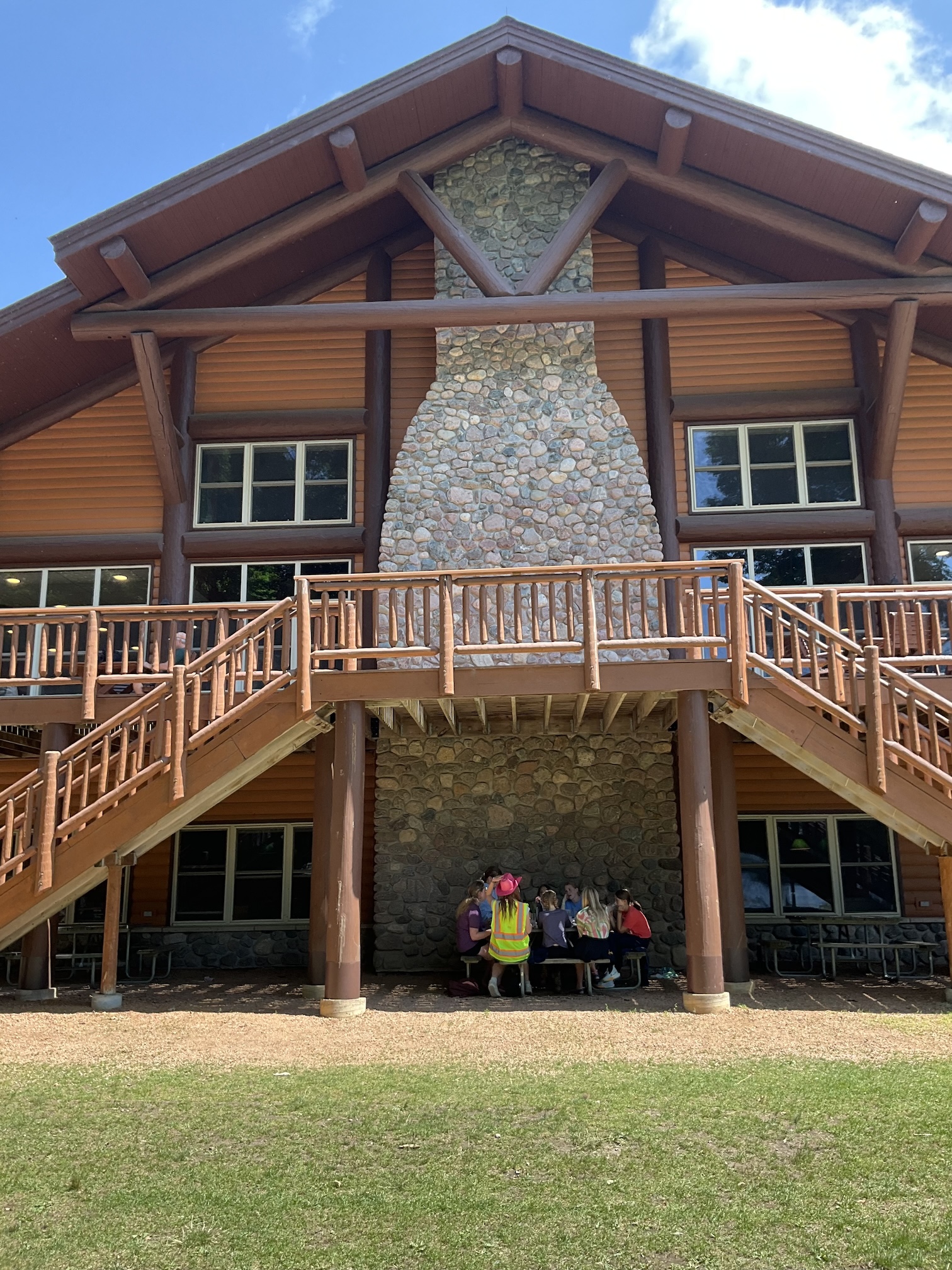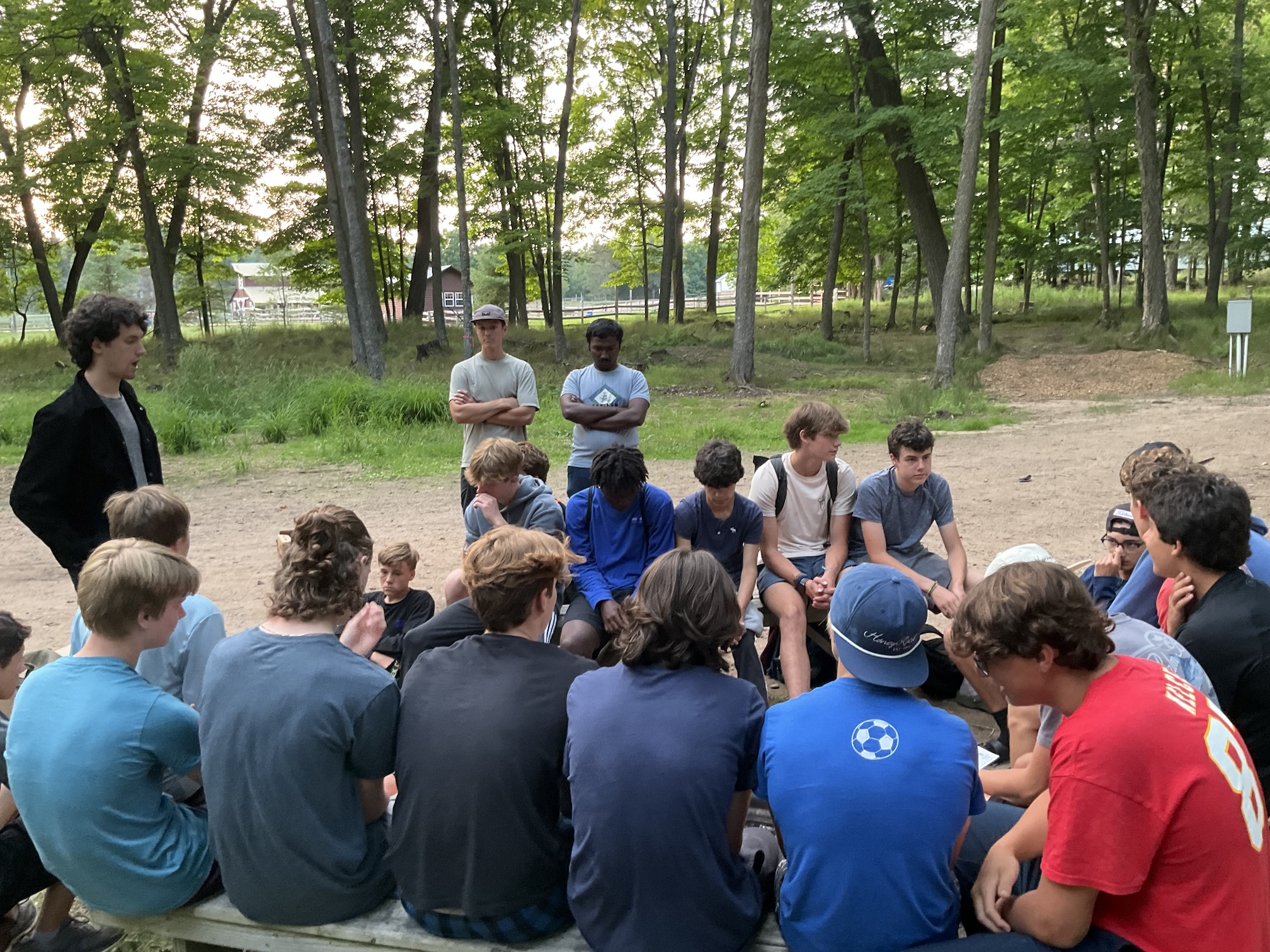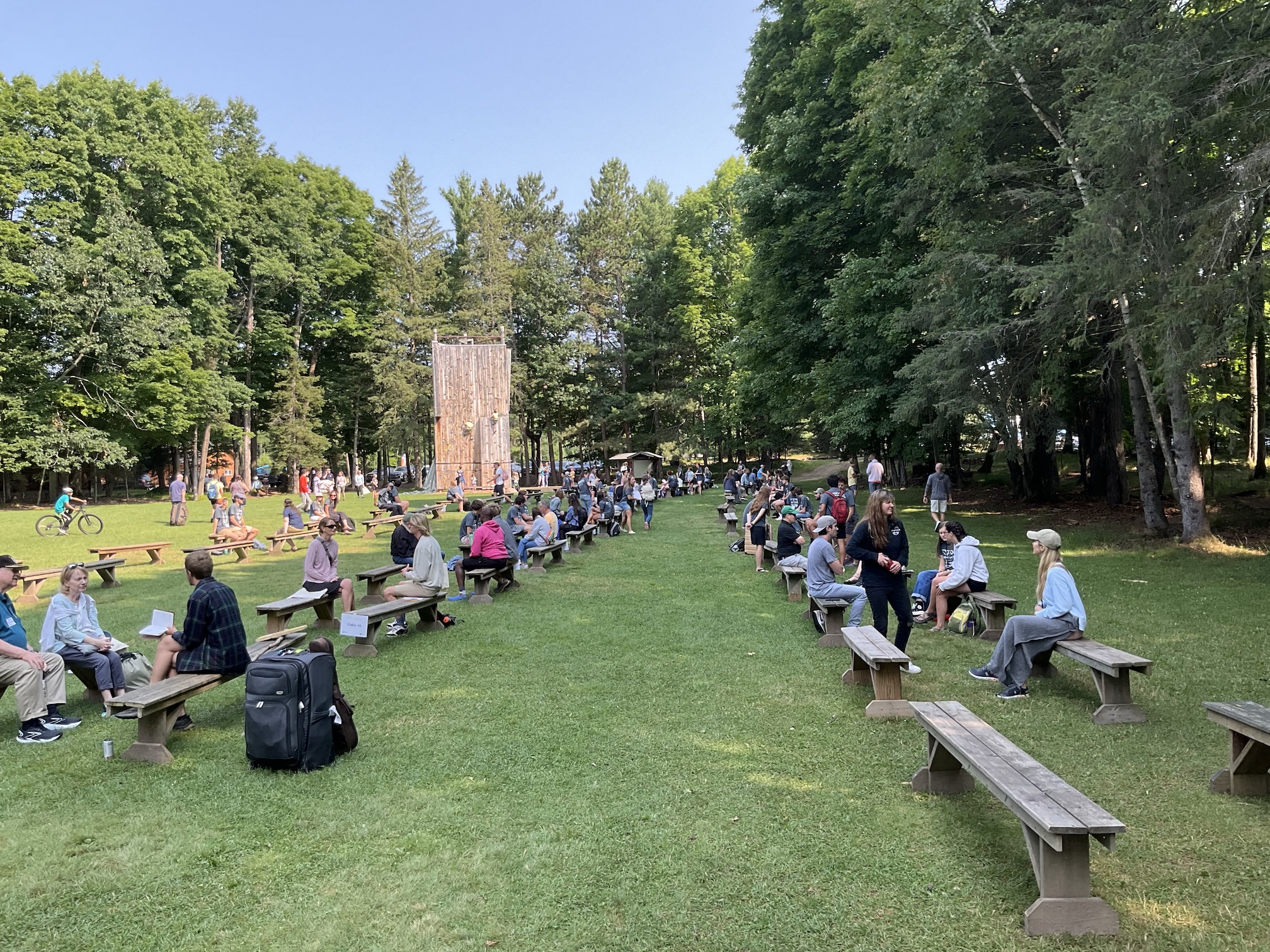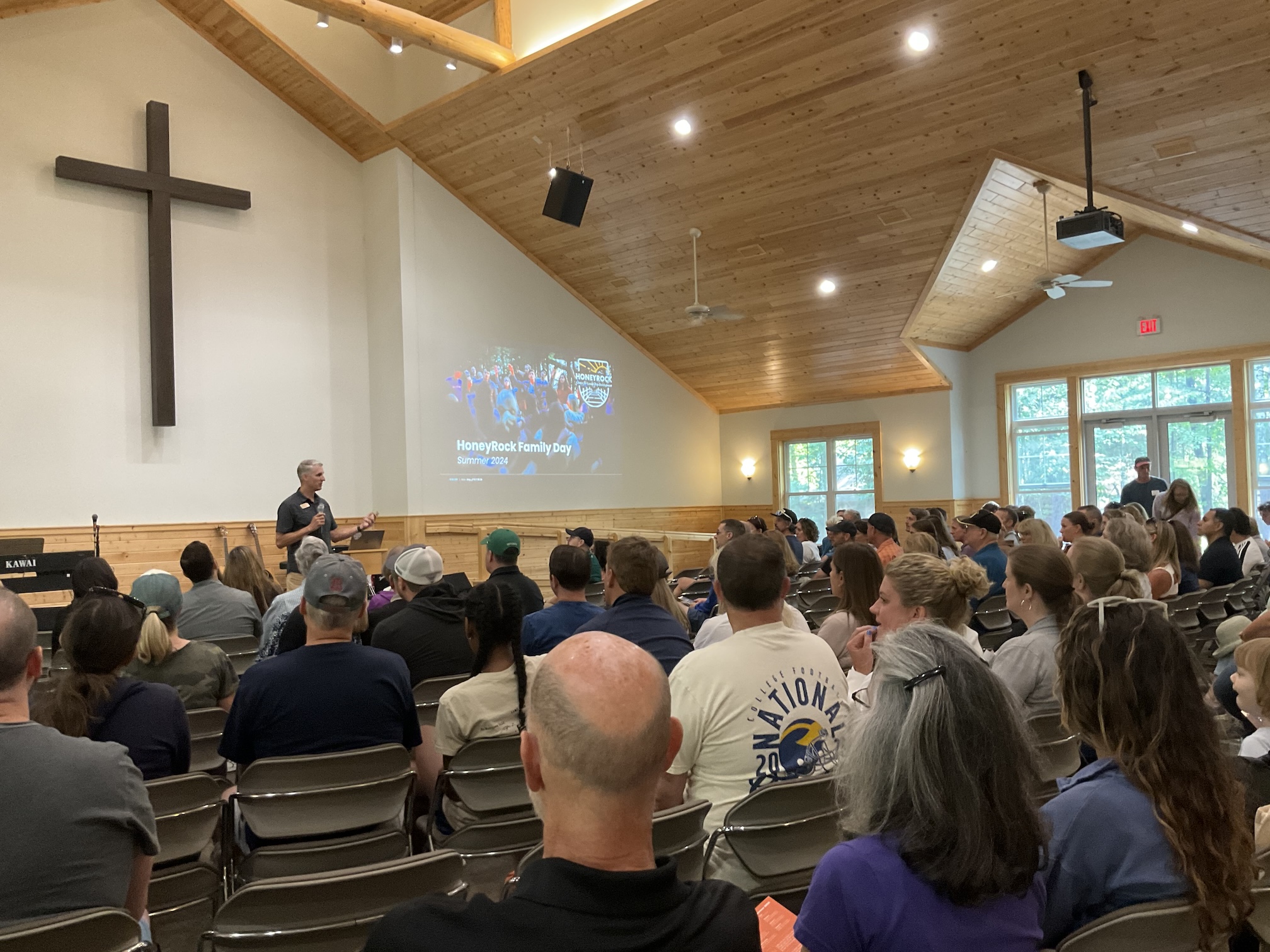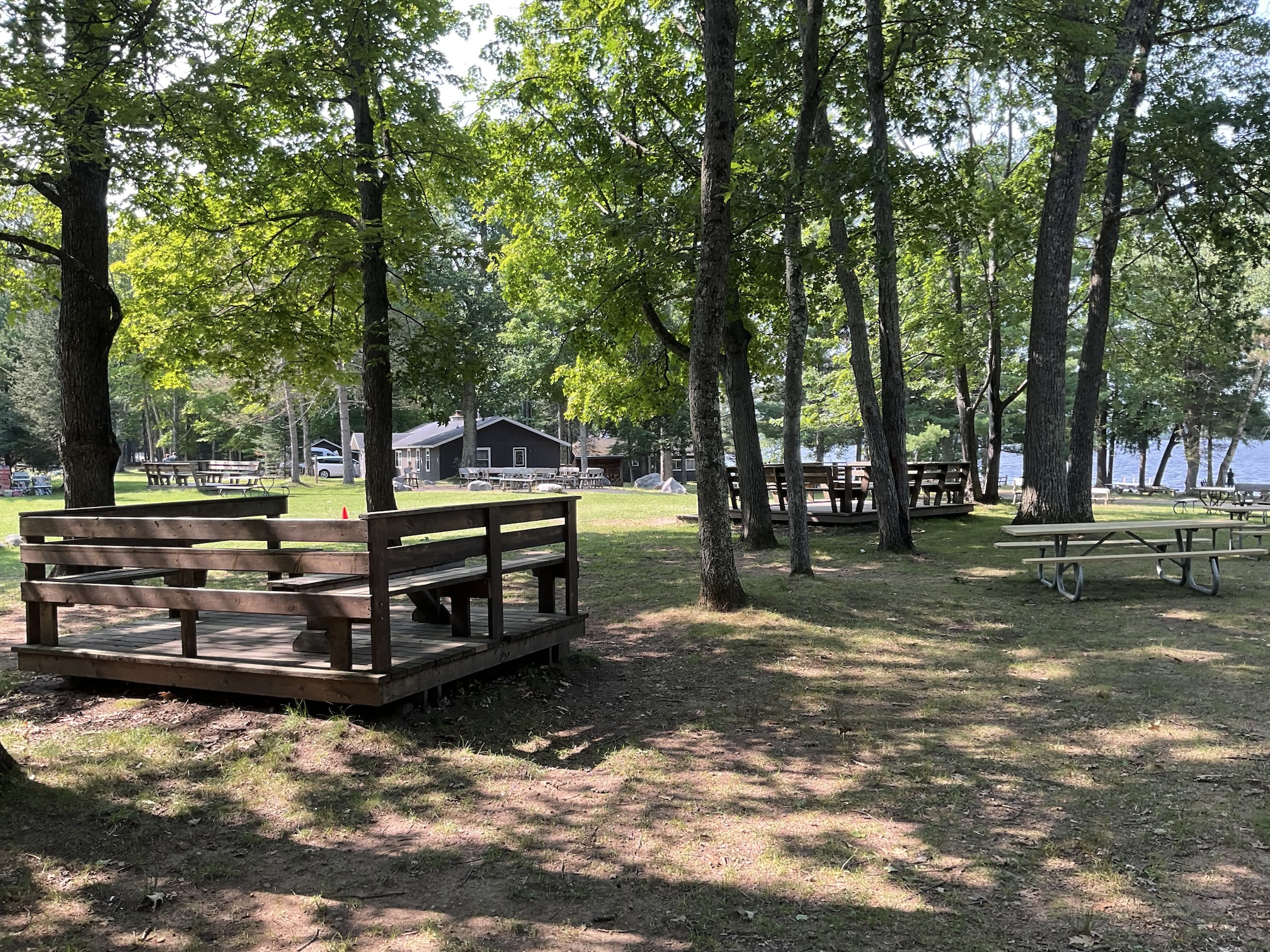Welcome to HoneyRock
The HoneyRock Center for Leadership Development is located on one of the many lakes that dot the northern region of Wisconsin. Driving to the Center, dairy farms give way to pine woods and I saw many deer and a coyote on my way to the camp in the evening. The Center is about a 4.5-hour drive from Minneapolis and 6 hours from Chicago. It is not far from the Boundary Waters region, allowing extended canoe trips as part of some of their programs for older campers. The winding country road leading to the camp weaves around lakes and ponds, giving one a sense of going deeper and deeper into wilderness. It feels like a place apart, a good place to get away and experience life in a different way. But what is the purpose of this place? What has led to its development? What is it for? The website statement below summarizes it well.
Located in the Northwoods of Wisconsin, the HoneyRock Center for Leadership Development is an explicitly Christian leadership development center that creates space for youth and emerging adults to encounter God’s creation, live in a Christ-centered community, discover their unique callings, and find their place in God’s Kingdom. Here, people are equipped, empowered, and commissioned to live their callings for Christ and His kingdom.
More than a summer camp, HoneyRock is a learning center. More than programming for children and youth, it is a place for the formation of young people so they can follow God’s call to serve wherever they end up. It is a place for the transformation of lives to live more Christianly, serve more unselfishly, and lead more humbly and effectively. As such, the programming at HoneyRock has some unique elements as they seek to fulfill their mission.
HoneyRock was started in 1951 by staff from Wheaton College. It was created as a place for experiential learning and the development of Christian character and leadership qualities and skills. It provides learning experiences for high school and college students and international leaders-in-training through the camp programs these staff put on for elementary, middle school, and high school students.
The camp has many of the traditional elements for children and youth campers (e.g., swimming, archery, riflery, horseback riding, climbing walls, arts and crafts, trip camping, Bible lessons, devotional practices, worship times), but it also has classrooms for training camp counselors/staff – both high school and college age – and invests heavily in staff development. The dual agenda of leadership development and spiritual formation are evident in how the camp runs its programs.
Programming for Leadership Development
The HoneyRock literature describes their mission as follows: “HoneyRock exists to build Christ’s church and benefit society worldwide by fostering the development of whole and effective people through transformational experiences.” Their vision statement is, “Generations alive in Christ and equipped for the good works He prepared for us to do.” There is clear intentionality shown in how staff talk about the camp as a place of leadership development, and the progression of programs demonstrates this well. As campers grow and return each new year, the elements of challenge, leadership development, and service increase.
Day Camp – Grades 1-4, one week
Intro Camp – Grades 3-6, one week
Res Camp – Grades 4-8, two weeks. Two sections – one for elementary, the other for middle school.
Advance Camp – Grade 9, two-three weeks. A “rite of passage” program to equip campers for entering high school. Involves service and challenge experiences.
2:22 – Grades 10-11, four weeks. Includes a 7–8-day wilderness experience (backpacking or canoeing) and some service opportunities. Based on 2 Timothy 2:22: “Flee the evil desires of youth and pursue righteousness, faith, love, and peace, along with those who call on the Lord out of a pure heart.”
Voyageur – Grades 10-12, two-three weeks. With an emphasis on creation engagement and challenges in the midst of their camping trips. Most of the time is an immersive wilderness experience (canoeing or backpacking).
Catalyst I – Grades 11-12, five-seven weeks. First year of a two-year leadership development program. Provides opportunities for serving on staff and learning leadership skills and qualities.
Catalyst II – Grades 11-12, six-eight weeks. Second year of the leadership development program. Similar to Catalyst I, but with more responsibilities for serving in camp and leading campers.
Program Distinctives
HoneyRock camp programs are marked by several distinctives that deeply influence what is done in their programming and how staff interact with campers:
Decentralized Camp Experience
Multiple camp programs for various ages can be present at the same time. Campers stay within their “cabin group” for most activities, including meals, with some variation in activity options available for older campers. Camps have corporate worship times, but most other activities are experienced in their cabin groups.
Family and Word-of-mouth Connections
As a non-denominational camp associated with a Christian college, there are no strong denominational or congregational connections. Campers tend to come individually, not as part of a church youth group. This encourages campers to make new friends each year and means that camp staff mainly interact with parents for follow-up, not church leaders.
Extensive Staff Training and Support
Because of their focus on leadership development, there is extensive training of summer staff before campers arrive. Most regular summer staff participate in four weeks of training, with some who are overseeing extensive trip camping also receiving two more weeks of training in wilderness skills and emergency first aid. This is a heavy investment in leadership development.
Temporary Community
Because of the decentralized approach taken, campers form significant relationships within their cabin groups and with their cabin leaders (2 leaders for 8 campers). These temporary communities become places of learning and growth as they experience camp life together. This aspect of Christian community was a strong theme I heard from campers about the impact of camp in their lives.
Intentional Coaching
Cabin leaders actively coach/disciple their campers, debriefing experiences of the day, encouraging spiritual practices, addressing challenges, praying with and for their campers. Two counselors/staff lead each cabin group of campers. There is deep appreciation and respect shown by campers for their cabin leaders, and their impact in the campers’ lives is significant.
Creation Engagement
Outdoor activities of various kinds allow campers to experience God in His creation, encouraging a larger sense of who God is and awe and wonder at His power and creativity. Reflection on this is modeled and encouraged by staff. Trips into the wilderness increase in length of days as campers grow and move into each new program level, experiencing many challenges as opportunities for growth.
Sacred Rhythms
Various spiritual practices are carried out, some daily, others at particular times in the camp experience. Devotions (Morning Watch), Examen (How-Pow-Wow), Solo (extended time in Scripture and prayer) are examples of individual practices, and daily Bible study and Worship times are examples of corporate practices. The goal is to help students engage in these rhythms at camp and take at least some of them home with them when camp is over.
Sacrificial Co-laboring
Within the camp experience, campers are engaged in serving one another in simple ways (serving others at meals, cleaning up). As they grow older, opportunities are given to serve other campers in different ways. Catalyst I (for rising Juniors) and Catalyst II (for rising Seniors) are a mix of serving in staff roles and participating in programming for their own growth spiritually and as leaders.
Naming Ceremony
One additional practice that may help campers solidify growth and commitments developed during their time at camp is the naming ceremony near the end of their camp experience. Their cabin leaders reflect on their character, strengths, and growth while at camp and in a ceremony within their group (e.g., all the guys’ cabins) the cabin leaders share a Scripture relevant to what they observed in the camper and then give them a new name that reflects the qualities they saw in them. Example: “Son of Patience” – reflecting that fruit of the Spirit demonstrated in the camper’s life. This sense of identify and affirmation of character qualities can help a camper continue to pursue these traits as they transition back home.
Sacred Rhythms
When it comes to strategies to help campers continue to grow spiritually after the camp experience is over, HoneyRock invests in two major efforts. The first, directed at the camper, is to help them develop “Sacred Rhythms,” spiritual practices that can become regular parts of their daily lives. Campers participate in morning devotions (Morning Watch) and use a devotional/journal booklet to guide their Scripture reading, reflecting, and praying. Campers are also taught elements of spiritual examen (“How” – has God showed up in your life? “Pow” – what is a hard thing that happened today and how was God there? “Wow” – what was a highlight today that God orchestrated?) and elements of prayer to develop as a regular pattern in their lives (Adoration, Confession, Thanksgiving, Supplication). In the Res Camp programs, elementary campers are encouraged to teach their parents about Morning Watch and parents are encouraged to do this with their children. Several Scripture passages are provided to help them get started. Middle school students are also encouraged to teach their parents about Morning Watch and do it with them. When it comes to older campers, the emphasis seems more focused on encouraging campers to continue these “Sacred Rhythms” on their own.
Parental Support
The second major strategy focuses on how parents are prepared to support their children’s spiritual growth as they come to camp and as they return home from camp.
Coming to Camp
HoneyRock provides an overview of each camp program to parents that includes:
- the spiritual theme for the camp program
- the Scriptures that will be the focus of study and memory work
- the major elements or activities of the camp program, and details about the wilderness trip the campers will experience.
This helps orient parents to what their children will experience, allowing them to prepare their children for the experiences and better understand what they might want to follow up on after camp is over.
Return Home from Camp
The model of wrapping up the camper’s experience at camp is also a major element of connecting with and supporting parents in their follow up with their children. “Family Day,” the last day of camp when parents come to pick up their children, is free and includes about four hours of time at the camp. Parents gather to learn about HoneyRock’s approach to camp ministry, what the various programs provide, and ways they can follow up with their children about their experiences. Parents then pick up their children and have time for exploring the camp, seeing the various activity centers, and observing some presentations in different areas (e.g., horseback riding, drama, music). In addition, parents have a 10-minute one-on-one session with their child’s cabin leaders who share a report on what the camp was like for their child (highlights and struggles), growth and lessons learned, allowing discussion on ways parents may want to follow up with their child to encourage continued growth. This is followed by a large group gathering to hear more about what campers achieved and experienced, celebrate and worship together, and then families share a meal by the lake while a water-skiing show is put on by campers and camp staff.
Outcomes Observed
A few observations stand out from interacting with campers, parents, and staff in the focus groups.
These older campers (Catalyst I and II), most of whom had several years of experience at camp, report the deep impact of being part of the Christian community at the camp and how that shaped what they looked for in relationships after camp ended. They also shared how important the “Sacred Rhythms” of camp were in establishing their own devotional practices outside of camp. Some talked about how they sought to apply some of the values they learned in their relationships with siblings at home. Very few said anything related to any kind of follow up with their parents.
Parents who had children attend HoneyRock for multiple years commented on how after camp their children were more eager to read Scripture at home. Some shared how their children continued their “Morning Watch” practices, or how they tried the “How-Pow-Wow” together as a family reflection practice at the end of the day. They commented on how learning the terms/language used for these practices at camp could make this easier to do at home. Parents did describe how their children came home with greater maturity in some ways, and greater innocence in others (away from negative cultural influences).
They also shared how helpful and important the Family Day experience was in their ability to debrief with their children and encourage them in their ongoing spiritual growth. Some discussed their one-on-one debriefing times with their children about what they experienced and what they wanted to pursue to continue growing spiritually. Others focused on the initial debriefing on the way home from camp or in the days that followed.
Staff, most of whom had also been campers for some years, shared how the Christian community and the “Sacred Rhythms” learned at camp, were both so important in their own growth as campers, and how they saw it impacting the campers they now worked with. Some felt that Family Day was a key element for helping parents understand their children’s experiences and to talk with the cabin leaders about good ways to follow up with their children after camp. They also discussed the one-on-one sessions they had with their campers and how that sometimes led to significant spiritual discussions and growth.
Additional Observations
While Family Day is a significant investment in helping parents understand what their children had experienced at camp, and could encourage some good follow up after camp, there is very little in the camp literature about mission, vision, and values regarding connecting with or the support of parents. The camp focus on parents in Family Day seems to have grown up over time but is not well represented in the ministry philosophy and strategy materials. It may be helpful to address this more explicitly to ensure it does not fade away in the future with a change of leadership or in response to a significant financial challenge.
While there is some emphasis with younger campers on doing Morning Watch with their parents at home, or practices of examen (How-Pow-Wow), this is not addressed as well with camp programs for older campers (grades 9 and up). Few of the campers in the focus groups seemed to have any real conception of ways they might bring their faith practices home to share with family members, or how camp might help shape family faith practices. While Family Day provides an opportunity to talk with interested parents about this, older campers themselves may not have this on their radar. To what degree is this a normal reflection of changing family patterns as children enter high school? What might healthy family faith practices look like at this age, and how might HoneyRock promote them
Parents in the focus group were eager for help in identifying faith practices to try with their children at home, and for good resources to use. Because of their trust in HoneyRock and its staff, they would welcome recommendations coming from camp staff on how they might pursue family faith practices at home that build on what their children experienced at camp. More attention to this area may be a fruitful investment for interested parents.

